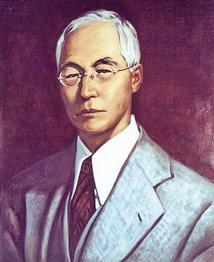Upcoming Events
Spotlight
A Brief History

Asakawa Kan’ichi (1873-1948)
CEAS is Yale’s interdisciplinary hub for the study of all aspects of East Asia and its constituent peoples, cultures, and societies. For over sixty years, its mission has been to support scholarship of the highest level across the humanities and social sciences, and to facilitate deeper understanding of the region at Yale and beyond.












